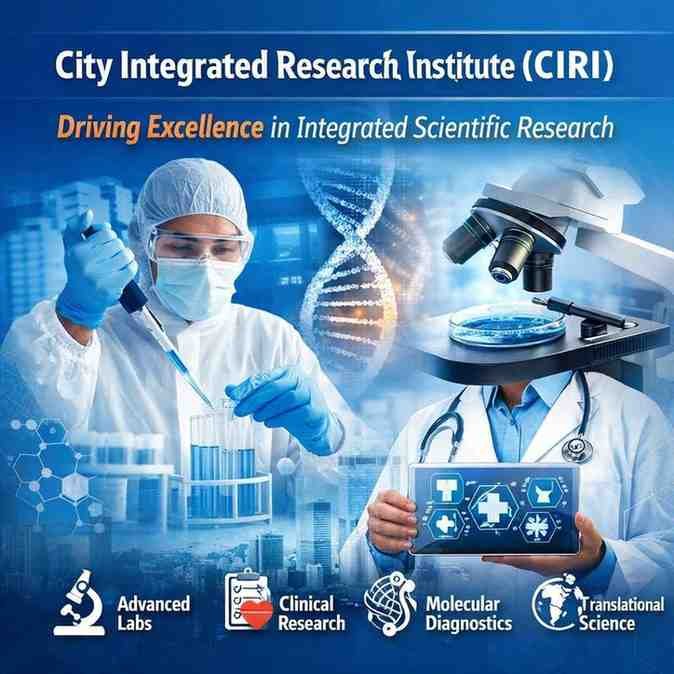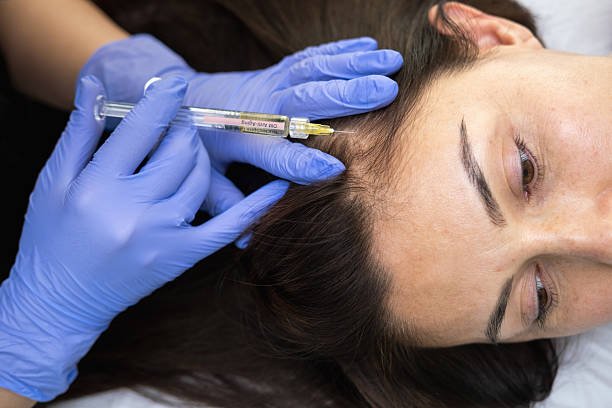Endocrinology is a branch of medicine that focuses on the study and treatment of the endocrine system, which includes glands such as the thyroid, pituitary, adrenal, pancreas, ovaries, and testes. These glands produce hormones that regulate essential functions in the body, including metabolism, growth, mood, and reproductive processes.
An endocrinologist is a specialized doctor who diagnoses, treats and manages endocrine disorders, which can affect hormone production and cause a variety of symptoms in the body. If you’re searching for the best endocrinologist doctor near me or an endocrinologist doctor in Kolkata, it’s crucial to find a healthcare provider with expertise in managing conditions related to the endocrine system.
Common Endocrine Disorders
1. Diabetes Mellitus (Type 1 and Type 2)
Cause: Insulin resistance (Type 2) or insulin deficiency (Type 1).
Symptoms: Frequent urination, excessive thirst, weight loss, blurred vision, slow-healing wounds.
Treatment: Lifestyle changes, insulin therapy, oral medications, and regular monitoring of blood sugar levels.
2. Hypothyroidism (Underactive Thyroid)
Cause: The thyroid gland produces insufficient thyroid hormone, leading to a slowdown in metabolism.
Symptoms: Fatigue, weight gain, depression, cold intolerance, constipation.
Treatment: Synthetic thyroid hormone replacement therapy (e.g., levothyroxine).
3. Hyperthyroidism (Overactive Thyroid)
Cause: Excessive thyroid hormone production, often due to Graves’ disease or thyroid nodules.
Symptoms: Weight loss, anxiety, tremors, heat intolerance, palpitations.
Treatment: Antithyroid medications (e.g., methimazole), radioactive iodine, or thyroid surgery.
4. Polycystic Ovary Syndrome (PCOS)
Cause: Hormonal imbalance affecting the ovaries and leading to irregular periods, excessive hair growth, and cyst formation.
Symptoms: Irregular periods, acne, weight gain, infertility.
Treatment: Lifestyle changes, hormonal birth control, metformin, and fertility treatments.
5. Cushing’s Syndrome
Cause: High levels of cortisol, often due to prolonged use of corticosteroid medications or tumors in the pituitary or adrenal glands.
Symptoms: Weight gain, high blood pressure, muscle weakness, round face, easy bruising.
Treatment: Surgery to remove tumors, radiation therapy, medications to block cortisol production.
6. Addison’s Disease (Adrenal Insufficiency)
Cause: Underproduction of cortisol and aldosterone hormones by the adrenal glands.
Symptoms: Fatigue, weight loss, low blood pressure, salt cravings, darkened skin.
Treatment: Hormone replacement therapy to replace cortisol and aldosterone.
7. Osteoporosis
Cause: Imbalance in bone resorption and formation, leading to fragile bones. Often associated with low estrogen or testosterone levels.
Symptoms: Increased risk of fractures, back pain, and height loss.
Treatment: Calcium and vitamin D supplementation, bisphosphonates, and hormone replacement therapy.
8. Pituitary Disorders
Cause: Tumors or dysfunction of the pituitary gland can cause underproduction or overproduction of hormones.
Symptoms: Fatigue, changes in menstrual cycle, infertility, headaches, vision problems.
Treatment: Surgery, radiation therapy, or hormone replacement therapy.
Common Causes of Endocrine Disorders
Genetic factors: Some endocrine disorders are inherited and may run in families.
Autoimmune diseases: Conditions where the immune system attacks the body’s own tissues, such as Hashimoto’s thyroiditis (hypothyroidism) or Graves’ disease (hyperthyroidism).
Infections: Viral infections or other pathogens can affect the function of endocrine glands.
Tumors or growths: Noncancerous or cancerous growths in endocrine glands can disrupt hormone production.
Medications: Certain medications, including corticosteroids or birth control pills, can interfere with hormone balance.
Environmental factors: Exposure to endocrine-disrupting chemicals, such as certain pesticides, can affect hormone function.
Age: Hormonal changes are common as individuals age, such as menopause or andropause.
Treatment Approaches
Hormone Replacement Therapy (HRT): Often used in conditions like hypothyroidism or adrenal insufficiency to replace deficient hormones.
Surgery: Surgical removal of tumors (pituitary tumors, thyroid nodules) or glands that are producing excess hormones.
Medications: For controlling symptoms (e.g., antithyroid drugs for hyperthyroidism, insulin for diabetes, bisphosphonates for osteoporosis).
Lifestyle changes: Diet, exercise, and stress management are crucial for managing conditions like diabetes and polycystic ovary syndrome (PCOS).
How to Find the Best Endocrinologist in Kolkata
If you are searching for an endocrinologist doctor near me or the best doctor in Kolkata, you can follow these tips to make an informed decision:
1. Research Qualifications and Experience: Look for an endocrinologist with board certification and extensive experience in managing your specific condition.
2. Check Reviews and Recommendations: Online reviews and recommendations from other patients can provide valuable insights into the doctor’s approach and expertise.
3. Consultation and Comfort: Ensure that the doctor listens to your concerns, explains your condition, and discusses the treatment options in a clear manner.
4. Technology and Facilities: A clinic with modern diagnostic equipment and facilities can help in providing accurate and timely treatment.
5. Personal Referrals: Ask for referrals from your general physician or friends and family who may have visited an endocrinologist in Kolkata.
Conclusion
Endocrine disorders can significantly affect your quality of life, but with the right treatment plan, many of these conditions can be managed effectively. If you’re looking for the best endocrinologist in Kolkata or an endocrinologist doctor near me, make sure to research thoroughly and consult with a specialist who can offer personalized care and the best treatment options. Early diagnosis and management can help prevent complications and improve long-term health outcomes.
If you need recommendations or more detailed information on specific clinics or doctors in Kolkata, feel free to ask!
for more(click here)
















Leave a Reply